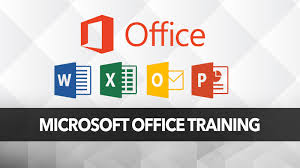In today’s digital landscape, proficiency in office software is not just an asset but often a requirement for many jobs. Microsoft Office, a suite of productivity applications, is widely used across various industries for document creation, data analysis, presentations, and more. Among the most essential applications in this suite are MS Word, MS Excel, and MS PowerPoint.
This article delves into the importance of MS Office courses, with a specific focus on MS Excel courses, highlighting their benefits, course content, and how to choose the right program.
Why Take MS Office Courses?
- Enhanced Productivity: Mastering MS Office applications can significantly boost your productivity. Knowing how to use features effectively allows you to complete tasks more efficiently.
- Career Advancement: Many employers prioritize candidates with strong MS Office skills. Completing MS Office courses can enhance your resume and increase your chances of securing a job or promotion.
- Comprehensive Skill Development: MS Office course cover a range of skills across different applications, ensuring that you are well-equipped to handle various office tasks.
- Customization and Efficiency: Understanding how to customize the settings and features in MS Office can streamline your workflow, saving you time and effort in the long run.
Overview of MS Office Applications
- MS Word: This word processing application is essential for creating, editing, and formatting documents. Courses in MS Word teach you about various tools, including formatting options, templates, and collaboration features.
- MS Excel: A powerful spreadsheet program, MS Excel is widely used for data analysis, financial modeling, and statistical analysis. Learning MS Excel equips you with skills in formulas, functions, data visualization, and pivot tables.
- MS PowerPoint: This application is essential for creating impactful presentations. Courses in PowerPoint focus on design principles, animation, and presentation skills to help you deliver engaging content.
- MS Outlook: A vital email client and personal information manager, MS Outlook courses cover email management, calendar functions, and task organization.
- MS Access: For those interested in database management, MS Access courses provide an introduction to creating and managing databases, as well as querying and reporting data.
Focus on MS Excel Courses
Among the MS Office applications, Excel stands out due to its extensive use in various professional fields, including finance, marketing, and project management.
Key Benefits of Taking an MS Excel Course:
- Data Analysis Skills: Excel is a powerful tool for data analysis. A course in Excel will teach you how to analyze data sets, perform calculations, and generate insights that can inform business decisions.
- Advanced Functions: Learning about advanced functions like VLOOKUP, HLOOKUP, INDEX, and MATCH can significantly enhance your data manipulation capabilities.
- Data Visualization: Courses often include training on creating charts, graphs, and dashboards, allowing you to present your data visually and make it more accessible.
- Automation: Many Excel courses introduce users to automation through macros, saving time on repetitive tasks and improving efficiency.
- Real-World Applications: Excel is used for budgeting, financial forecasting, inventory management, and more. A solid understanding of Excel can help you excel in these areas.
Course Content for MS Office and MS Excel
While the specific content may vary by institution, here are common topics covered in MS Office and MS Excel course:
MS Office Course Content:
- Overview of Microsoft Office Suite
- Introduction to MS Word: Document formatting, styles, and templates
- Basics of MS Excel: Creating spreadsheets, basic formulas, and functions
- Introduction to MS PowerPoint: Creating presentations, using templates, and adding multimedia
- Basics of MS Outlook: Managing emails, calendars, and tasks
MS Excel Course Content:
- Basic Excel functions: SUM, AVERAGE, COUNT, etc.
- Advanced functions: VLOOKUP, IF statements, and nested functions
- Data sorting and filtering techniques
- Creating and customizing charts and graphs
- Introduction to PivotTables and PivotCharts
- Data validation and conditional formatting
- Introduction to macros and automation
How to Choose the Right MS Office Course
When selecting an MS Office or MS Excel course, consider the following factors to ensure you get the best learning experience:
- Reputation of the Institution: Look for established institutions with positive reviews and feedback from previous students. A reputable institute often indicates quality education.
- Course Format: Determine whether you prefer in-person classes or online learning. Online courses offer flexibility, while in-person classes can provide hands-on guidance.
- Instructor Expertise: Investigate the qualifications and experience of the instructors. Experienced instructors can provide valuable insights and real-world examples.
- Course Duration and Structure: Check the duration of the course and how it is structured. A well-organized course with a balance of theoretical and practical sessions can enhance your learning experience.
- Certification: Consider whether the course provides a certification upon completion. Having a recognized certification can add value to your resume.
Conclusion:
Investing in MS Office courses, particularly MS Excel courses, can significantly enhance your professional skills and increase your employability. Mastering these applications not only boosts productivity but also opens doors to various career opportunities in today’s technology-driven job market.
Whether you are a student looking to enter the workforce, a professional seeking to advance your career, or simply someone wanting to improve their skills, enrolling in an MS Office course is a valuable step. Start your journey today to unlock your potential in the world of productivity software.
